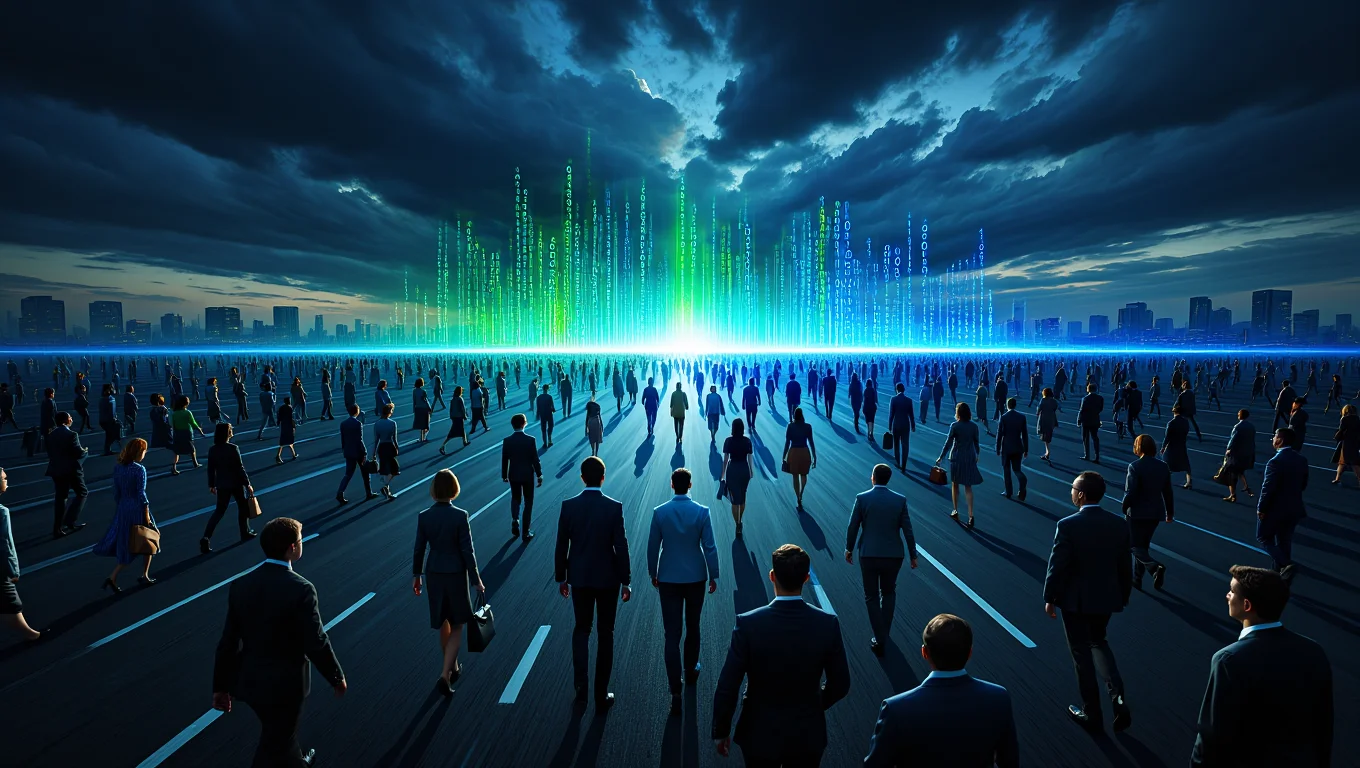 AI
AI
 AI
AI
 AI
AI
Dario Amodei, chief executive officer of artificial intelligence company Anthropic PBC, has warned in an interview that AI could eliminate up to half of all entry-level white-collar jobs within the next five years, potentially driving U.S. unemployment rates to between 10% and 20%.
In an interview with Axios today, Amodei expressed deep concerns that rapid advancements in AI are outpacing societal preparedness and said that he’s speaking out in hopes of jarring the government and fellow AI companies into preparing and protecting the nation. The irony is that Amodei, through Anthropic, is helping lead the charge in developing the tech that could cause the exact outcome he is warning against.
“Most of them are unaware that this is about to happen,” Amodei said in the interview. “It sounds crazy, and people just don’t believe it.”
To counter the effect he predicts AI will have on the job market, Amodei is calling for immediate action to mitigate the potential fallout. Among his ideas are a “token tax” on AI-generated revenue to redistribute wealth and support those affected by job displacement.
“Obviously, that’s not in my economic interest,” Amodei said of his own idea, “but I think that would be a reasonable solution to the problem.”
The potential impact of AI on the workforce is already being felt, particularly in sectors like finance, law and technology where automation is taking over routine tasks. Entry-level roles, often viewed as stepping stones for career growth, are especially vulnerable to being replaced by AI models capable of performing these tasks at a fraction of the cost.
Amodei’s forecast of job losses comes after the April release of the AI 2027 scenario, a detailed projection by researchers including Daniel Kokotajlo and Scott Alexander that forecasts that AI systems are evolving rapidly to perform tasks traditionally handled by humans, effectively functioning as autonomous employees.
The authors predict that by 2027, AI systems will not only automate a wide array of jobs but also accelerate technological progress beyond human oversight, potentially leading to significant economic and geopolitical upheaval. Like Amodei, the authors called for policymakers and society to prepare for the profound transformations AI may bring to the labor market.
But are the forecasts realistic?
There is no question that AI will disrupt jobs and that is already being seen. A report from Oxford Economics published earlier this week found that AI is contributing to increased unemployment among recent college graduates in the U.S. The study provides concrete data supporting concerns that AI is beginning to replace entry-level white-collar jobs, a trend referred to by some as a “white-collar recession.”
Another report in April from Vanity Fair detailed how automation and AI are already replacing human roles, starting with interns. It’s nigh on impossible to argue against the proposition that AI will replace jobs and possibly many jobs as the technology continues to improve and is improved by the likes of Amodei himself.
But what comes next is open to dispute. Businessman and television personality Mark Cuban believes that AI will create new jobs rather than eliminate them. As first reported by Business Insider, Cuban argues that technological advancements, while disruptive in the short term, have historically led to the development of new industries and roles, resulting in expanded employment opportunities.
Cuban emphasizes that just as automation has reshaped jobs in the past, AI will unlock new possibilities for work, from creative problem-solving to jobs that haven’t yet been imagined.
He also highlights that the overall impact of AI on employment depends on how companies and policymakers respond to the technological changes AI brings, suggesting that by fostering innovation, supporting entrepreneurship and investing in retraining programs, society can mitigate the negative effects of job displacement and build a more resilient workforce.
The invention of the cotton power loom heralded job losses during the early stages of the Industrial Revolution and gave the English language the word Luddite. Electricity, mass manufacturing, the internet and more have come since the 18th century and yet people still have jobs. Cuban may have a point: New jobs will emerge and already are. From prompt engineer to vibe coder, we’re already at the beginning of a new era of AI jobs. What comes next will at least not be boring.
Support our mission to keep content open and free by engaging with theCUBE community. Join theCUBE’s Alumni Trust Network, where technology leaders connect, share intelligence and create opportunities.
Founded by tech visionaries John Furrier and Dave Vellante, SiliconANGLE Media has built a dynamic ecosystem of industry-leading digital media brands that reach 15+ million elite tech professionals. Our new proprietary theCUBE AI Video Cloud is breaking ground in audience interaction, leveraging theCUBEai.com neural network to help technology companies make data-driven decisions and stay at the forefront of industry conversations.